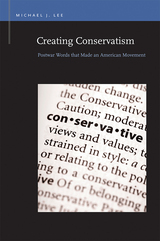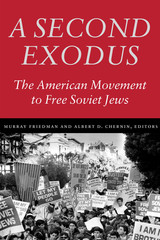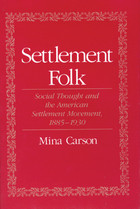3 books about American Movement

Creating Conservatism
Postwar Words that Made an American Movement
Michael J. Lee
Michigan State University Press, 2014
Creating Conservatism charts the vital role of canonical post–World War II (1945–1964) books in generating, guiding, and sustaining conservatism as a political force in the United States. Dedicated conservatives have argued for decades that the conservative movement was a product of print, rather than a march, a protest, or a pivotal moment of persecution. The Road to Serfdom, Ideas Have Consequences, Witness, The Conservative Mind, God and Man at Yale, The Conscience of a Conservative, and other mid-century texts became influential not only among conservative office-holders, office-seekers, and well-heeled donors but also at dinner tables, school board meetings, and neighborhood reading groups. These books are remarkable both because they enumerated conservative political positions and because their memorable language demonstrated how to take those positions—functioning, in essence, as debate handbooks. Taking an expansive approach, the author documents the wide influence of the conservative canon on traditionalist and libertarian conservatives. By exploring the varied uses to which each founding text has been put from the Cold War to the culture wars, Creating Conservatism generates original insights about the struggle over what it means to think and speak conservatively in America.
[more]

A Second Exodus
The American Movement to Free Soviet Jews
Edited by Murray Friedman and Albert D. Chernin
Brandeis University Press, 1999
Since the early 1960s, some 1.3 million Jews from the Soviet Union and its successor states have immigrated to the West, primarily to Israel and the US. Largely due to the imaginative and skillful mobilization efforts of Jews and their friends throughout the world, this great exodus had important ramifications for US relations with the Soviet Union/Russia and Israel. In addition, the success of American Jews in mounting and sustaining this lobbying effort represented a coming of age for the community, which only a few decades before had been unable to extricate millions of Jews from Europe and the Nazis. This book, part history, part celebration, combines essays by scholars with memoirs and first-hand accounts to chronicle this extraordinary rescue mission. CONTRIBUTORS: Zvi Gitelman, Marshall I. Goldman, Douglas Kahn, William Korey, Nehemiah Levanon, Micah H. Naftalin, Walter Ruby, Richard Schifter, Myrna Shinbaum, Steven F. Windmueller, and the editors
[more]

Settlement Folk
Social Thought and the American Settlement Movement, 1885-1930
Mina Carson
University of Chicago Press, 1990
Mina Carson deftly merges social and intellectual history to reconsider the settlement movement—its Anglo-American roots and evolution, its conflicts and accomplishments. Carson focuses her study on the careers and ideas of settlement founders and leaders, among them Jane Addams, Robert Woods, Mary Simkhovitch, Lillian Wald, and Graham Taylor. She demonstrates how these influential, often charismatic leaders appropriated and adapted certain Victorian values—such as the Social Gospel and the religion of character—to their visions of urban reform through action and experimentation.
These extraordinary individuals left an enduring legacy of beliefs about professional and voluntary responsibility for welfare services. As Carson shows, however, their genius for image creation and their myriad connections with other intellectual and social leaders extended the influence of the settlement ideology in many directions: fostering new attitudes toward the American city and the equality of the sexes, initiating a new social-scientific approach to social problems, and shaping the self-definition of the American educated middle class.
These extraordinary individuals left an enduring legacy of beliefs about professional and voluntary responsibility for welfare services. As Carson shows, however, their genius for image creation and their myriad connections with other intellectual and social leaders extended the influence of the settlement ideology in many directions: fostering new attitudes toward the American city and the equality of the sexes, initiating a new social-scientific approach to social problems, and shaping the self-definition of the American educated middle class.
[more]
READERS
Browse our collection.
PUBLISHERS
See BiblioVault's publisher services.
STUDENT SERVICES
Files for college accessibility offices.
UChicago Accessibility Resources
home | accessibility | search | about | contact us
BiblioVault ® 2001 - 2025
The University of Chicago Press









